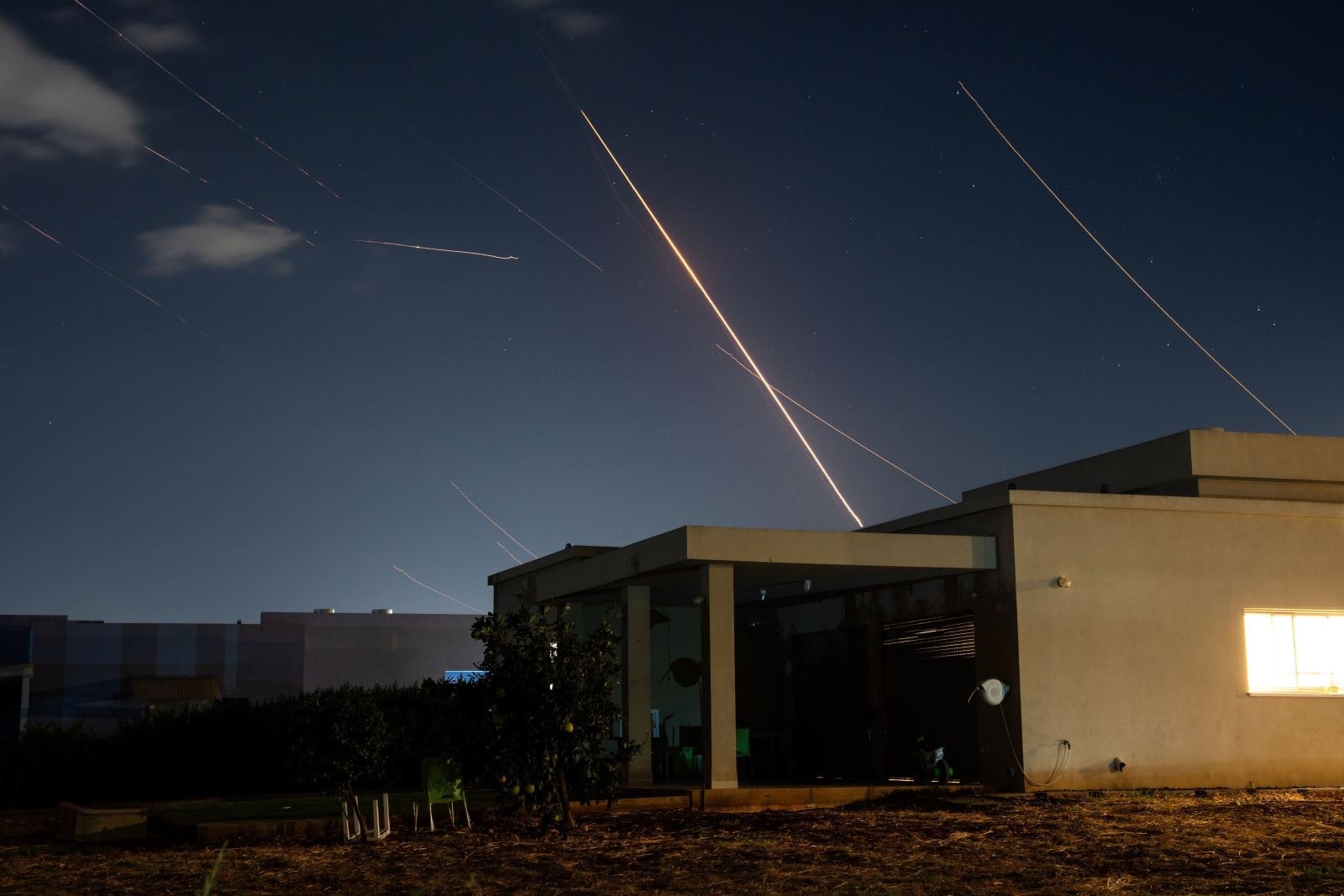The moment an Iranian missile crashed into Tel Aviv on the evening of October 1 was the clearest signal yet that the long-warned regional conflict had finally broken out.

According to The Guardian (UK), the missile attack on the evening of October 1 was Iran's second airstrike on Israel in less than 6 months. In the attack, which was warned a few days earlier in April, Iran deployed drones and cruise missiles, and the main target was a military base in the sparsely populated Negev desert.
In the attack on October 1, after 12 minutes of flight, Iranian ballistic missiles were deployed ahead, targeting targets including densely populated urban areas. According to local media, Israeli officials called the attacks a declaration of war by Iran.
Although there were no casualties, the fact that the cities were targeted was seen as crucial to Israel's response.
Following Iran’s April attack, Israel largely responded with a show of force. The only target hit inside Iran was an air defense outpost at a military base near Isfahan.
In the wake of the missile attack on the evening of October 1, when many Israelis were in a state of uncertainty, Prime Minister Benjamin Netanyahu was expected to respond in a much more comprehensive manner. Response proposals were put forward, ready for the war cabinet to choose from, and the target list was considered significant, possibly including Iran’s nuclear facilities.
On October 1, the White House was the first to warn of Iran’s impending missile launch, perhaps in an attempt to take away the element of surprise from the attack, and in the slim hope that it might be stopped. Although it failed, the US press conference before the launch still had political utility, and showed that at least Washington was not caught off guard.
Despite the risks to the Middle East, the attack also threatens to have a significant impact on American politics. The United States is just five weeks away from a tense presidential election.
The United States has failed for months to broker a hostage-for-peace deal in Gaza, and its efforts with France to negotiate a ceasefire in Lebanon during a meeting at the United Nations General Assembly last week also failed.
Immediately after Prime Minister Benjamin Netanyahu’s speech at the United Nations on September 27, Israel immediately responded. Tel Aviv carried out a strike targeting the supreme leader of Hezbollah – a leading partner of Iran in the region, Mr. Hassan Nasrallah.
Iran's Islamic Revolutionary Guard Corps (IRGC) said the missile attack on the evening of October 1 was in retaliation for the death of Mr. Nasrallah, and the assassination of Hamas political leader, Ismail Haniyeh, in late July in the capital Tehran.
Since the conflict in Gaza erupted on October 7 last year, officials in the Joe Biden administration have vowed to prevent the violence from escalating into a regional war.
After Iran’s missile attack on Israel in April, the Biden administration urged Israel to show restraint, using the leverage of U.S. air defense support to convince Netanyahu to “win” by shooting down nearly all incoming missiles. The U.S. reportedly signaled to Tehran that in the event of a second Iranian attack, it would not and could not be a restraining influence.
The forces of restraint in the Middle East are weakening by the day. Politically, the Biden administration cannot be stopped from responding to Iran’s attacks on Israeli cities. Meanwhile, Iran (especially the IRGC) is having to prove to its regional proxies and allies — from Hezbollah to the Houthis in Yemen — that it is a real force in the region, the leader of the “axis of resistance.”
According to observers, Mr. Netanyahu also moved significantly closer to his ambition of drawing the United States into a war against Iran, a war that would destroy the country's nuclear program, which is now close to production capacity after the collapse of the 2015 multilateral agreement.

According to the latest reports on the evening of October 1, the Iranian missile caused only minimal casualties, but raised concerns about possible scenarios in the next few years: missiles flying just 12 minutes from Israel, carrying nuclear warheads.
And Israel’s destructive wars against regional rivals – first Hamas and then Hezbollah – will surely fuel Iran’s argument that only nuclear weapons can ensure its safety, while Tehran’s fear of such arguments will push Israel to wage a preemptive war.
In times of danger, the Middle East often looks to influential countries like Washington for help to contain and reverse the logic of escalation. But President Biden’s influence appears to be fading in his final months in office.
There have long been calls in defense circles for the United States to take action against Iran’s nuclear program. And those calls are sure to grow now, in an effort to sway a president who has sworn to defend Israel against the Iranian threat.
The Biden administration has generally been cautious when it comes to military operations abroad, and Kamala Harris is expected to follow a similar path. Experts say escalating violence in the Middle East would hurt Harris’ chances of succeeding Biden in the White House, and bring the prospect of a Donald Trump comeback closer.